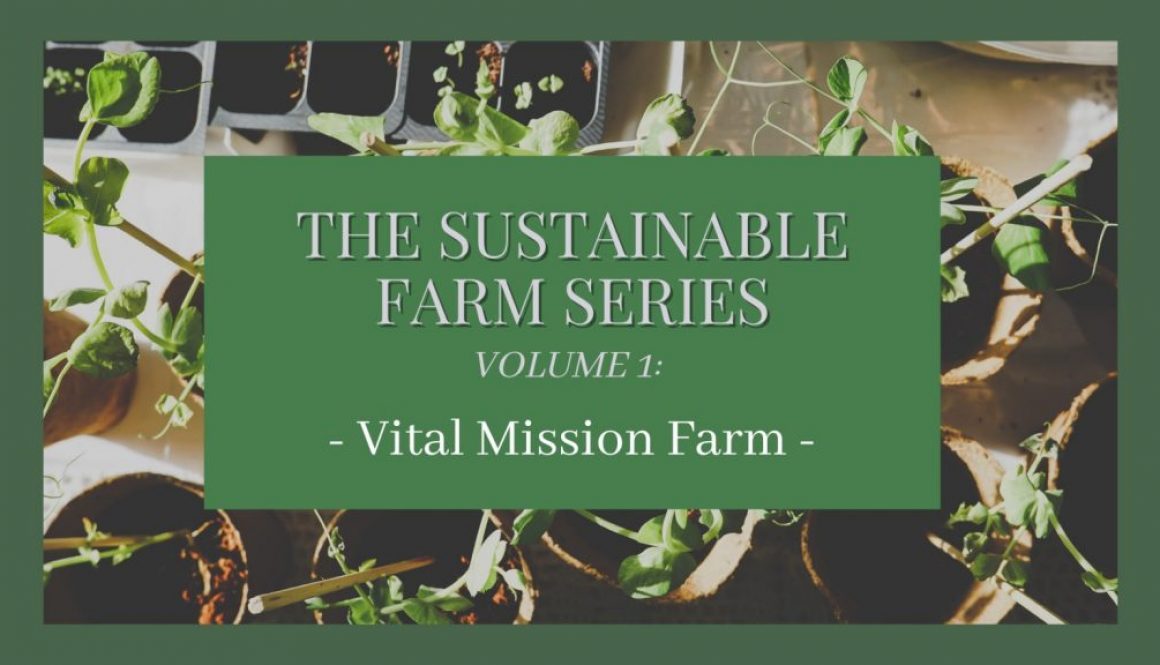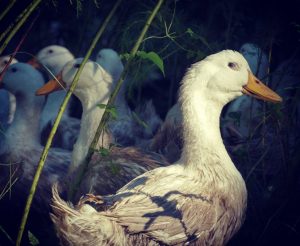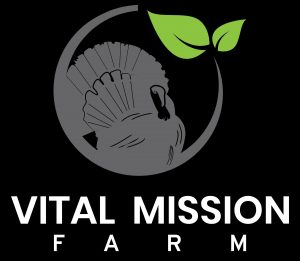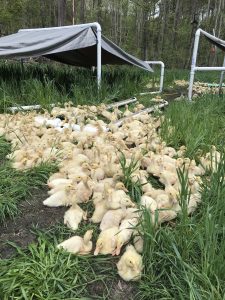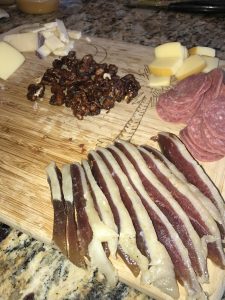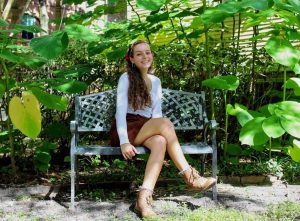The Sustainable Farm Series Volume 1: Vital Mission Farm
Author: Hanna Giblin
Can Animal Agriculture Be Sustainable?
When thinking about sustainable agriculture and sustainable farms, does animal agriculture come to mind? If not, you’re not alone. Our food system is currently dominated by industrial livestock production that not only requires high amounts of resources to support but they are also very damaging to the surrounding land and the animals raised there in poor conditions. However, our animal agriculture industry does not have to run on such a harmful model. Natural ecosystems exist in harmony with both plants and animals present; in fact, plants and animals are dependent on each other to continue the cycle of nutrients over time. The more our food system can be modeled after our ecosystems, the less damage we will cause in our agricultural processes, reducing contributions of CO2 gases influencing climate change.
What Is Regenerative Agriculture?
Regenerative agriculture is a farming and grazing practice that works to restore resources in the environment by creating agricultural models based on nature. These strategies emphasize: improving soil quality and sequestering CO2 in the atmosphere into the soil, using natural fertilizers, and promoting diversity of plant and animal species. Typically on these farms, both plants and animals are grown together, often in a field or pasture setting. A variety of plant and grass species create a food source for the animals, whose waste, in turn, fertilizes the soil to feed the plants. Diversity in plant and animal species makes the ecosystem as a whole much more resilient. In general, it would be best to reduce our overall meat consumption as a society; however, it would be incredibly difficult to end animal product consumption entirely. This is not necessarily a bad thing either. Without considering the ethics behind animal product use or debating personal food preferences, it is necessary to keep at least some animal products in production because there are many people whose dietary restrictions make them unable to switch to an entirely plant-based diet. Therefore, if animal agriculture is still realistically going to persist in our food systems, we must improve our farming practices to ensure they are as sustainable and regenerative as possible. A great example of this movement towards sustainable animal agriculture can be seen in Jeff Siewicki’s efforts on Vital Mission Farm.
Jeff Siewicki & Vital Mission Farm
Jeff Siewicki began his journey running Vital Mission farms on Wadmalaw Island, SC, in 2018. What started as a personal goal to raise chickens to provide clean, healthy food for his family became a passionate mission to create a better model for poultry farming. This pastured poultry farm runs “using nature as a model,” designing their farm to function as an ecosystem. Incorporating a healthy balance of plants and livestock in an open-pasture setting has allowed Siewicki and Vital Mission farms to experience increased productivity without using fertilizers, herbicides, and pesticides. This strategy creates a low-impact, nutrient recycling, life-building community through fostering an interdependent relationship with all parts of the farm.
Sustainability At Vital Mission Farm
Vital Mission Farm’s goal is to be part of the climate solution and grow food that is healthy for animals, people, land, and the environment. With the agricultural industry being a significant source of greenhouse gas emissions, their commitment to “regenerative agriculture” is a refreshing approach to animal agriculture. Regenerative agriculture in itself prioritizes topsoil regeneration, increasing biodiversity, improving the water cycle, increasing the resilience of our ecosystems, and even mitigating climate change. These sustainable practices at Vital Mission Farm shine a light on a healthier, more ethical, and environmentally conscious model for the future of our food systems. Their poultry is raised outside and rotated to fresh pastures daily. Fruit and nut trees are planted in the pastures, which feed the birds where they, in turn, fertilize the plants and trees around them. As said on their website, “we want to have a net positive impact on our environment and build something better than it was before, while reducing CO2”.
Initially, most of their business was done through wholesale to restaurants. While it was always their goal to expand operations to sell to individuals, COVID-19 made adaptability necessary. It led Vital Mission Farm to open sales on their online shop and sell at local farmers markets like Sea Island Farmers Market on Saturdays. They also have partnerships with other local restaurants and businesses where their products can be found- that list of partnerships can be found here. Since expanding their consumer market, many individuals are unfamiliar with cooking whole birds, so their products have diversified to suit the needs of the average home cook. Some of their most popular products now include different cuts of meat, duck eggs, duck prosciutto, duck confit, and hatching eggs for people looking to raise their own birds. Siewicki even provides us with a variety of recipes on their website for anyone in need of a bit of cooking inspiration.
When asked further about the ways in which the COVID-19 pandemic has affected their business, the response was similar to much of the experiences we are seeing on a national level. As restaurants struggle to maintain business due to safety restrictions and limited business in general, this also harms small farms and producers as much of their business is typically conducted in partnership with restaurants. Siewicki notes that their involvement in local farmer’s markets in addition to their online store has been the key to their success and survival during this difficult time. However, it is still possible for us to support Vital Mission Farm and other local businesses, even if not directly purchasing their products! Spreading the word throughout the community, telling your friends and family, and resharing content on social media are all constructive ways to support small businesses and farms.
Before the end of our conversation, I had one last question for Mr.Siewicki,
“What is your ideal vision for the future of our food system in the United States?”
This farm’s efforts are not used on a large enough scale to directly influence our food system at this time. Despite this, showing that sustainable agriculture practices are attainable at a business level is a crucial step towards what Siewicki believes will pave the way for more mainstream use of sustainable and regenerative practices in the future. The commercial farming industry often prioritizes profits over sustainable practices and ethical farming. However, suppose we work to inform and empower the public to support local farms and small businesses using sustainable practices. In that case, this provides quite an incentive for commercial farms to attempt to replicate these new farming models.
Jeff Siewicki and his team at Vital Mission Farm are just one example of great efforts towards sustainable food systems in the greater Charleston area. Let us learn from their example and continue supporting and spreading the word about local businesses and farms doing great work for sustainability. It’s time to take back control over the food we eat and the impact we have on our environment, one small farm at a time.
For more information, please visit their website vitalmissionfarm.com
Facebook: Vital Mission Farm
Instagram: Vital Mission Farm
For anyone interested in becoming a farm entrepreneur (specifically pastured poultry), Jeff Siewicki offers an online course on Farmer Jeff’s Instagram.
About the author:
Hanna is a sophomore at the College of Charleston double majoring in Public Health and Sociology with a minor in Spanish. She hopes to use her diverse studies to have a future in nonprofit work to support sustainability in our food systems and community development. When Hanna is not in class or doing work for the Center, she can be found cooking, spending time in the garden, and inspiring others about subjects she is passionate about!
